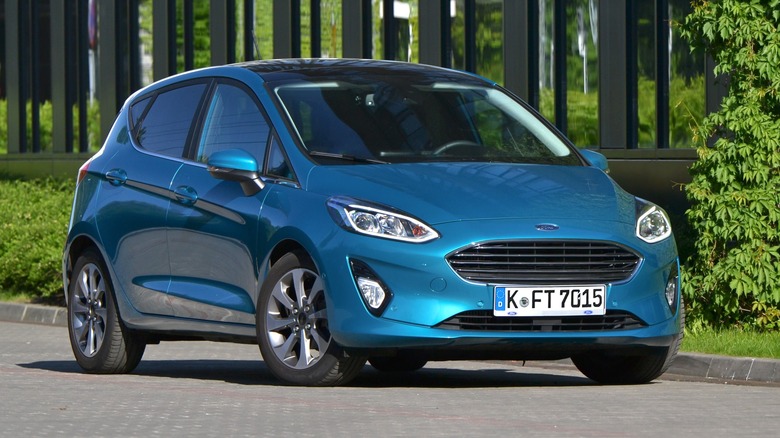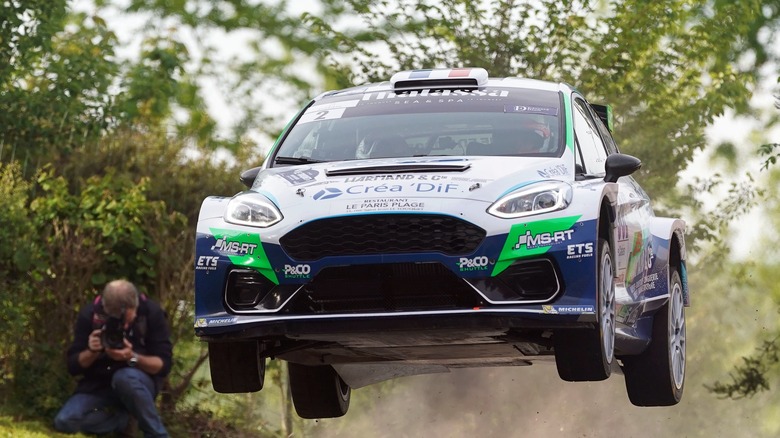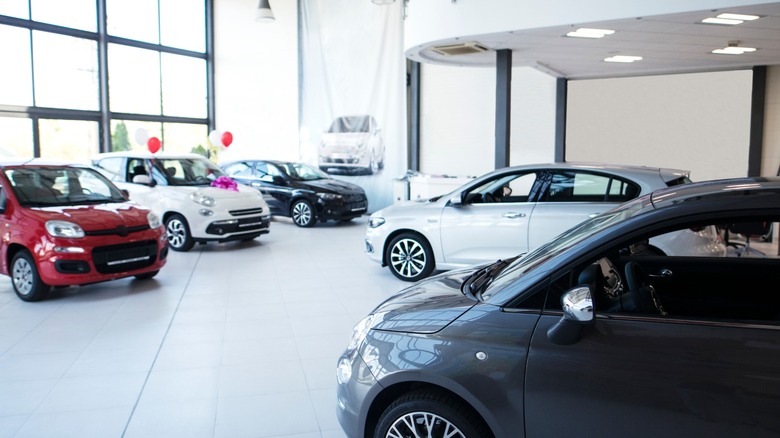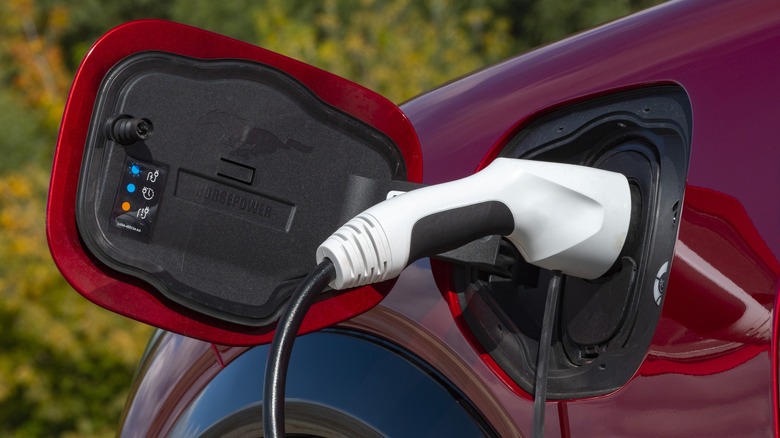Here's Why Ford Discontinued The Fiesta
How many compact cars are so much fun to drive that they might even put a smile on your face? Well, the Ford Fiesta has been doing just that for nearly five decades. But now, Ford has signaled the end of an era for many who have come to find this model a trusted and reliable companion, as the company announced that it won't be making any more models in the future.
And that's a tough bump to get over. Why? For about 47 years, the Fiesta has built a reputation as a compact car that's not just affordable but equally stylish and light, with great handling and excellent fuel economy. It's an ideal choice for many people buying their first cars and really anyone who wants to get around in something nice, efficient, and easy to maintain.
If you've had the joy of driving a Fiesta, you might wonder why Ford discontinued a model the Guardian dubbed the UK's all-time bestselling car. Has the demand for it dwindled? And is this an instance where Ford is simply making an economic decision that makes the most sense for the growth of its business? Or is this a consequence of a more strategic shift toward the Electronic Vehicle (EV) market? Let's find out.
The Fiesta's journey from bestseller to history
The Fiesta was one of the UK's top 10 best-selling cars for 12 consecutive years between 2009 and 2020, according to AutoCar. Yet in July 2023, Ford terminated the production of the Fiesta, a line that had sold about 22 million units since its launch in 1976.
It started its lifecycle as a smaller alternative to the Ford Escort, a model the company stopped producing in the early 2000s. So, this supermini, designed in hatchback style, was very simple. In fact, its simplicity certainly endeared it to the public, certifying it a mass favorite purely because of how fun to drive and how easy it was to maintain. In 1979, the Mk1 Fiesta earned Ford an award from the Design Council for being a "detailed and calculated attempt to reduce the maintenance and repair costs."
Now, don't go thinking this compact car is a boring everyday car. The Fiesta — especially the "punchy little hot-hatch" ST model and the turbocharged RS WRC version — went on to make a name for itself in the world of motorsport, particularly in rallycross. Sébastien Ogier drove the Fiesta RS WRC to win the World Rally Championship two years in a row, in 2017 and 2018. Over in the Global RallyCross Championship, the Fiesta ST, with the Olsbergs MSE team, clinched the championship titles in 2011, 2012, 2013, and 2014.
The sedan sales slump is affecting smaller cars like the Fiesta
Despite a car's impressive performance and agility on and off the racetrack, the economics of profit margin still play a role in whether or not that car remains on the market. Smaller cars generally offer slimmer profit margins when compared to SUVs, trucks, and crossovers. It's one of the reasons why so many small cars are getting bigger.
Even though the Fiesta is one of the cars we believe Ford shouldn't have discontinued, the company has been scaling back production, strategically shifting its focus towards models that promise higher returns and, quite sadly, phasing out the less profitable lines.
A combined total of SUVs, trucks, and crossovers represent more than 60% of the market share, while smaller cars, once really common among consumers, have crashed to less than 30 percent of new car sales in the U.S. In response to this market shift, Ford's CFO, Bob Shanks, shared that the company is indeed being strategic about how it chooses to invest its resources, focusing over 90% of its resources into the production of SUVs and trucks, and allocating less than 10% into passenger cars.
This pivot means that passenger cars — sedans and superminis like the Fiesta, Focus, and Fusion — are leaving the market. And if you were a real big fan of these cars, Mark LaNeve, Ford's vice president of U.S. Marketing, Sales, and Service, is confident there's still a vehicle for you within Ford's extensive lineup.
Since EVs are the future, Ford is adjusting accordingly
Ford will still make small, inexpensive vehicles—they'll just now be electric vehicles. In fact, Martin Sander, a general manager at Ford, mentioned to Automotive News Europe that the possibility of reviving the Fiesta as an electric vehicle is a notion Ford hasn't dismissed.
While the market for electronic vehicles is rapidly changing, Ford is making big, bold moves to position itself as a worthy rival of Tesla and Chinese automakers, pumping a substantial investment of $2 billion to convert the German factory in Cologne where the last Fiesta was produced into an electric vehicle (EV) production facility.
This EV-focused facility in Cologne has been described as the Ford's first carbon-neutral factory, an attempt at creating "one of the most efficient and environmentally responsible plants in the entire industry." Currently, it has the capacity to produce 250,000 EVs annually, with ambitions to increase this figure to 2 million EVs yearly by 2026. And while we're unsure what the future holds for a possible EV Fiesta, we know that the electric versions of popular Ford models, such as the Explorer, will be rolling out soon.



